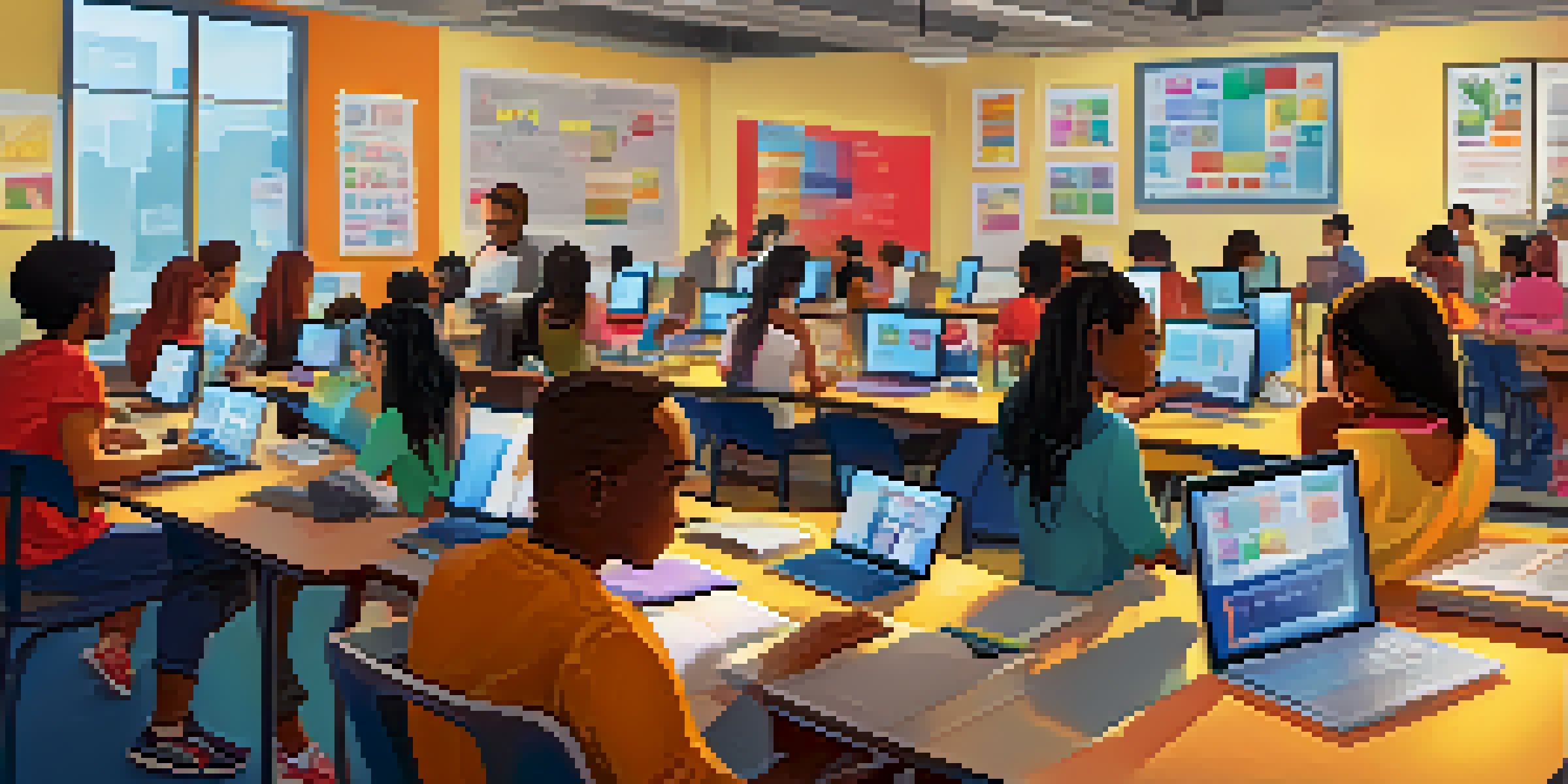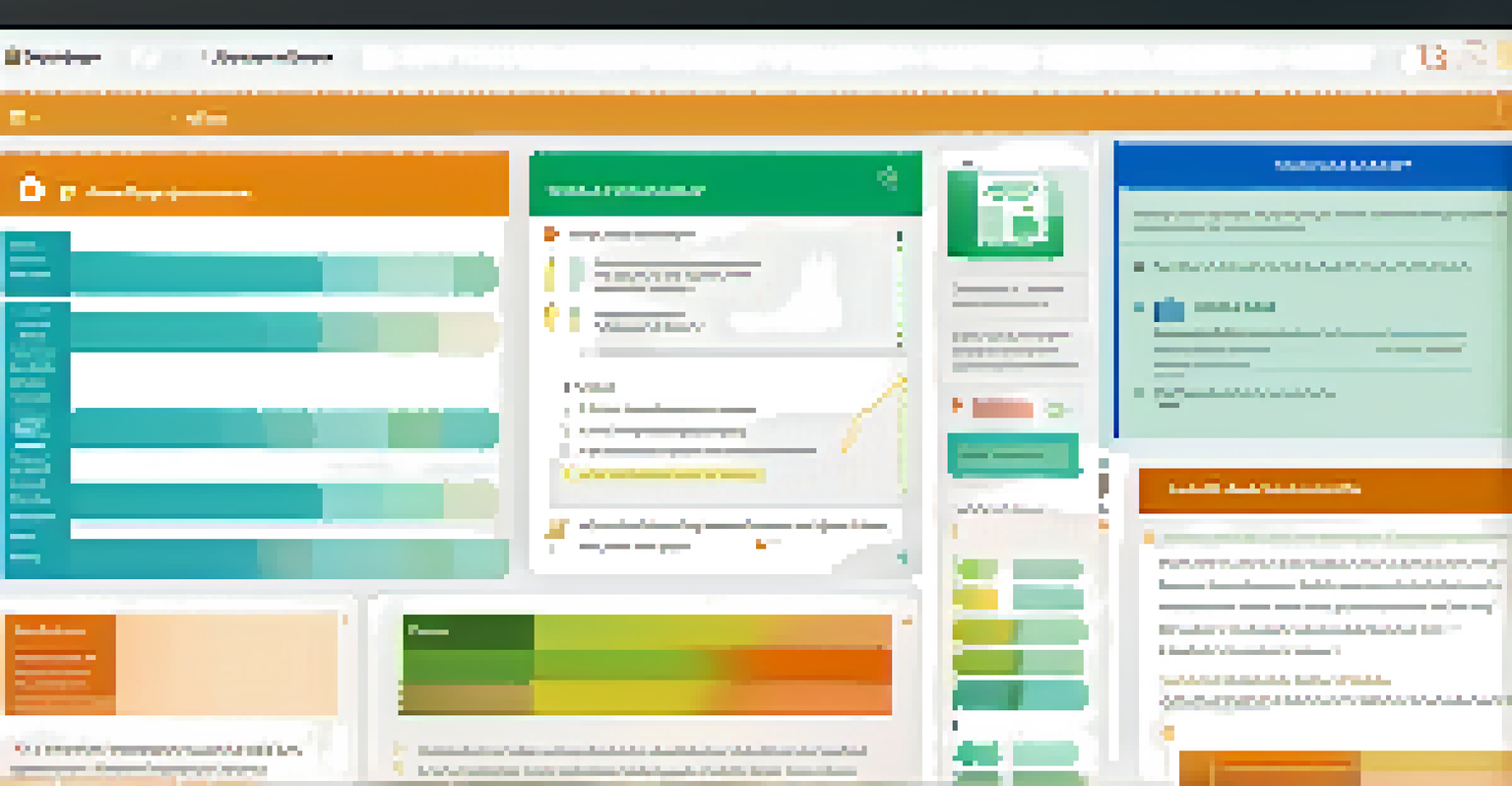Impact of Learning Styles on Assessment in eLearning

Understanding Learning Styles in eLearning Contexts
Learning styles refer to the preferred ways in which individuals absorb, process, and retain information. In eLearning, recognizing these styles is crucial for tailoring educational experiences that resonate with diverse learners. For instance, some learners might thrive through visual aids, while others may prefer auditory or kinesthetic methods.
People learn in different ways, and the key to a successful learning experience is to adapt to these diverse learning styles.
When educators understand the various dimensions of learning styles, they can create more inclusive and effective online courses. This understanding not only enhances engagement but also helps in fostering a deeper comprehension of the material. It’s like having a toolbox where the right tool can make all the difference in completing a project efficiently.
Moreover, acknowledging learning styles encourages a more personalized approach to education. This personalization can significantly affect assessment outcomes, as students are more likely to perform well when they engage with content in a way that feels natural to them.
The Role of Assessments in eLearning
Assessments in eLearning serve as a critical measure of understanding and skill acquisition. They provide educators with insights into student performance and areas that require improvement. However, the one-size-fits-all approach to assessments often misses the mark, as it may not align with individual learning preferences.

For example, a written exam may disadvantage visual learners who could excel in projects or presentations. Hence, it’s vital to consider how different assessment formats can better capture the knowledge of diverse learners. This understanding promotes a more accurate reflection of a student’s true abilities and comprehension.
Tailoring Assessments to Learning Styles
Incorporating diverse learning styles into assessments ensures that students can demonstrate their knowledge in a way that aligns with their strengths.
Incorporating varied assessment methods, such as quizzes, discussions, or interactive tasks, can cater to different styles and contribute to a more holistic evaluation. This flexibility not only supports learners but also enriches the overall educational experience.
Impact of Learning Styles on Assessment Strategies
The integration of learning styles into assessment strategies can transform the educational landscape. By aligning assessments with preferred learning modalities, educators can improve student performance and motivation. For instance, allowing students to choose between a written essay or a video presentation can empower them to demonstrate their understanding in their preferred format.
If we want to reach people, we have to speak their language.
This shift not only enhances engagement but also promotes a sense of ownership over one’s learning journey. When students feel that their unique styles are acknowledged, they are more likely to invest effort and enthusiasm into their assignments. It’s similar to choosing your favorite recipe; you’re more likely to enjoy cooking if you’re excited about the dish you’re preparing.
Furthermore, adaptive assessments that change based on learner responses can provide immediate feedback and support. This responsive approach caters to various learning styles, allowing for a dynamic assessment environment that can adapt to individual needs.
Challenges in Assessing Diverse Learning Styles
While integrating learning styles into assessments has many benefits, it also presents certain challenges. One major issue is the difficulty in accurately identifying each learner's style. Often, learners themselves may not fully understand their preferences, leading to potential mismatches in assessment methods.
Additionally, educators might face constraints such as time, resources, and training when trying to implement a variety of assessment strategies. Balancing these demands while still catering to diverse learning styles can feel overwhelming, making it essential to approach this challenge with a strategic mindset.
Challenges in Identifying Learning Styles
Accurately identifying each learner's style can be difficult, as students may not fully understand their preferences, leading to potential mismatches in assessment methods.
To overcome these challenges, professional development for educators can be invaluable. Training programs that focus on recognizing and addressing learning styles can equip teachers with the tools needed to create effective assessments that resonate with all learners.
The Future of Assessments in eLearning
As technology continues to evolve, so too does the potential for innovative assessment methods in eLearning. The integration of artificial intelligence and adaptive learning technologies can lead to assessments that are not only personalized but also responsive to learners' changing needs. This evolution could significantly enhance the accuracy and relevance of assessments in real-time.
Imagine an assessment platform that adjusts questions based on a student’s previous answers, offering a tailored experience that reflects their learning style. This kind of innovation could ensure that every learner is evaluated in a manner that aligns with their preferred approach to learning.
Embracing such advancements can foster a more inclusive educational environment, where every learner has the opportunity to succeed according to their unique strengths. This progressive outlook on assessments can ultimately lead to improved learning outcomes and greater student satisfaction.
Creating an Inclusive Assessment Framework
To effectively harness the impact of learning styles on assessments, an inclusive framework is essential. This involves designing assessments that not only accommodate different learning styles but also promote equity among all students. By ensuring that every learner has access to a variety of assessment formats, educators can create a more level playing field.
For instance, incorporating group projects, peer evaluations, and self-assessments can provide multiple avenues for students to demonstrate their understanding. This variety not only caters to different styles but also encourages collaboration and critical thinking skills.
Future of Adaptive Assessment Methods
The integration of technology, like artificial intelligence, promises to create adaptive assessments that respond to individual learning needs in real-time.
Ultimately, an inclusive assessment framework not only benefits learners but also enriches the teaching experience. Educators can gain deeper insights into their students' capabilities and foster an environment that champions diversity in learning.
Conclusion: Embracing Learning Styles for Better Assessments
In conclusion, understanding and incorporating learning styles into assessment strategies is vital for enhancing the eLearning experience. By recognizing individual preferences, educators can create assessments that not only evaluate knowledge but also empower learners. This approach transforms traditional assessments into opportunities for growth and engagement.
As we move forward, it's essential to continue exploring ways to personalize learning environments, ensuring that every student feels valued and understood. The future of eLearning assessments lies in embracing diversity and fostering a culture of inclusivity.

Ultimately, when assessments reflect the unique learning styles of students, the potential for success is boundless. By championing this approach, we can create a more effective, engaging, and equitable educational landscape.